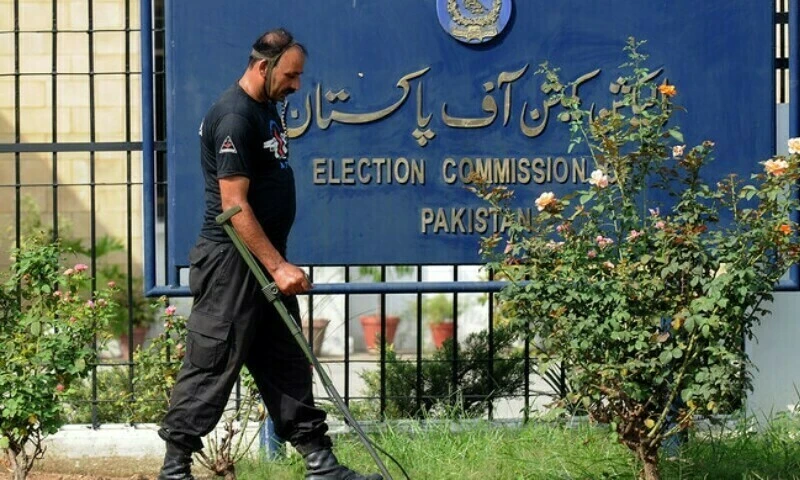Verdict Issued by a Majority Bench
The Election Commission of Pakistan (ECP) recently made a significant decision, rejecting Sunni Itehad Concil SIC's Reserved Seats Petition – the emerging faction of the PTI – regarding the allocation of reserved seats. This verdict, delivered by a five-member bench led by Chief Election Commissioner Sikandar Sultan Raja, with a majority decision of 4-1, marks a crucial development in the country's political landscape.
Dissenting Opinion by ECP Member
Notably, ECP member Babar Hassan Bharwana expressed dissent in an additional note, disagreeing with the majority's decision. While he acknowledged the failure of the SIC to submit priority lists in time, Bharwana argued for the allocation of seats through proportional representation to other political parties, citing constitutional provisions.
Background and Legal Context

SIC's Request and ECP's Response
The SIC, backed by PTI-linked lawmakers, had sought reserved seats in the national and provincial assemblies, excluding Balochistan. However, the ECP declined the request, citing procedural shortcomings, including the absence of a priority list of candidates from SIC for the reserved seats.
Legal Analysis by ECP
Referring to constitutional and statutory provisions, the ECP emphasized that parties with representation in the National Assembly are eligible for reserved seats based on a proportional representation system. It pointed out the failure of SIC to fulfill legal requirements, leading to the rejection of its petition.
Implications and Future Actions
PTI's Response and Planned Challenge
Following the verdict, PTI expressed strong disagreement and announced plans to challenge the ECP's decision regarding SIC's reserved seats petition. Accusing the commission of undermining democracy, PTI criticized the allocation process and demanded accountability, even proposing the resignation of the Chief Election Commissioner.
Uncertainty Surrounding Assembly Composition
The decision's aftermath raises questions about the completeness of assemblies and the impact on future elections, including the presidential and Senate polls. PTI argued that until the assemblies are complete, constitutional positions cannot be filled, highlighting potential disruptions in the electoral process.
Conclusion: A Decisive Ruling with Far-Reaching Consequences
The ECP's rejection of SIC's petition signifies a pivotal moment in Pakistan's political sphere. With legal intricacies and political ramifications at play, the verdict sets the stage for further legal battles and underscores the importance of adherence to electoral procedures for maintaining democratic integrity.
Keep Reading:
Backed Independents Join Sunni Ittehad Council | The World Echo

